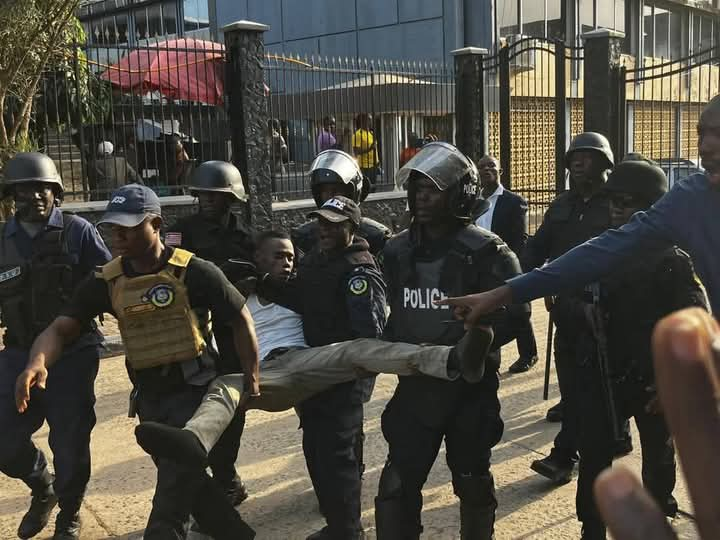The alleged mistreatment of Thomas Etheridge, a staff member of Liberian House Speaker Fonati Koffa, during the investigation into the Capitol Building fire raises serious concerns about the conduct of state security forces and the integrity of the justice system. Etheridge’s detailed account of coercion, fabrication, and physical abuse paints a disturbing picture of an investigation seemingly more focused on securing confessions than uncovering the truth. His testimony alleges a pattern of manipulative tactics employed by security personnel, including the selective editing of recordings to misrepresent his statements, the fabrication of incriminating evidence, and the use of threats and violence to extract desired responses. These allegations, if proven true, represent a grave violation of due process and undermine the public’s trust in the impartiality of the investigation.
The specific allegations leveled by Etheridge are deeply troubling. He claims that security personnel pressured him to admit involvement in the fire and linked him to individuals supposedly involved in the preceding protest, despite his denial of any connection to them. He recounts being subjected to prolonged interrogations in an “underground place,” where he was threatened with sodomy if he refused to cooperate. The alleged manipulation of recordings, where portions of his statements were selectively omitted to create a false narrative, further underscores the apparent disregard for proper investigative procedures. The case of Eric Susee, who also claims to have been coerced into making a false confession, echoes Etheridge’s experience and strengthens the argument that coercion was a systematic tactic employed by the investigators.
Etheridge’s ordeal highlights the vulnerability of suspects in high-profile cases, particularly when political tensions are high. The Capitol Building fire occurred amidst a power struggle within the Liberian Legislature, adding another layer of complexity to an already sensitive investigation. The context of political turmoil raises concerns that the investigation may be susceptible to manipulation for political gain, with individuals targeted based on their affiliations rather than on credible evidence. The alleged mistreatment of Etheridge and others raises the specter of politically motivated prosecutions and underscores the need for an independent and impartial inquiry into the conduct of the investigation.
The potential impact of these allegations on the overall investigation is significant. If the claims of coercion and fabrication are substantiated, it casts doubt on the validity of any confessions obtained through such methods. This could lead to the dismissal of charges against individuals wrongly accused and further complicate efforts to identify and prosecute the true perpetrators of the arson. The damage to the credibility of the security forces and the justice system could be long-lasting, eroding public trust and hindering future investigations.
The Liberian government has a responsibility to ensure that all investigations are conducted with integrity and respect for the rights of the accused. A thorough and impartial investigation into Etheridge’s allegations is crucial, not only to ensure justice for him but also to restore public confidence in the rule of law. Failure to address these allegations seriously would send a chilling message about the government’s commitment to upholding fundamental human rights and could have far-reaching consequences for the stability and legitimacy of the state.
The international community also has a role to play in ensuring accountability. International human rights organizations and foreign governments should monitor the situation closely and press the Liberian government to conduct a transparent and credible investigation into the alleged abuses. Supporting independent monitoring mechanisms and providing technical assistance to strengthen the capacity of the Liberian justice system can contribute to preventing future human rights violations and promoting a culture of respect for the rule of law. The case of Thomas Etheridge serves as a stark reminder of the importance of safeguarding due process and ensuring that justice is pursued fairly and impartially, regardless of political pressures or the high-profile nature of a case.


